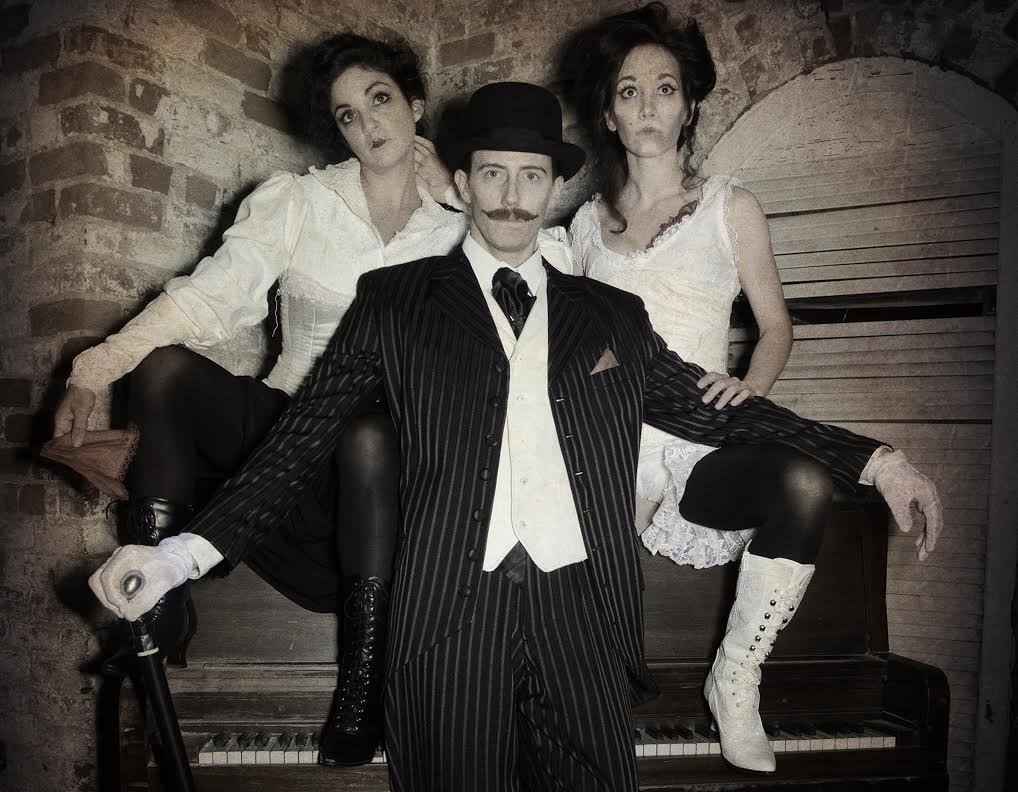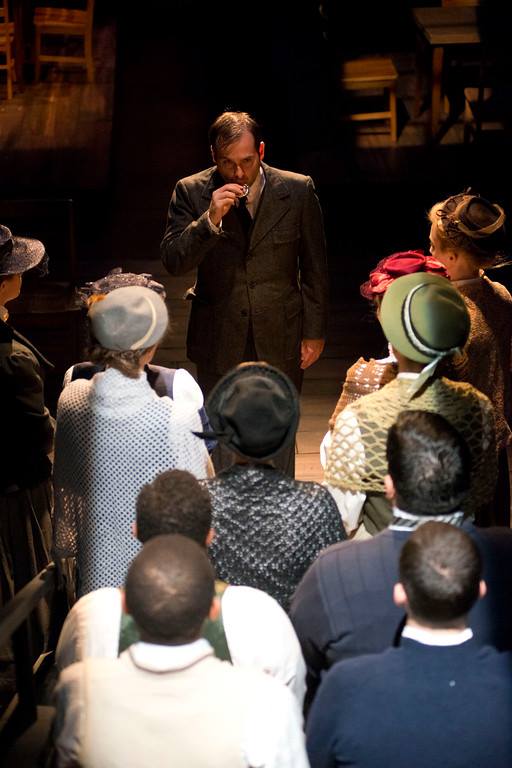 Blithe Spirit by Noël Coward, and directed by Stan Brown, opens this weekend and serves as a close to Theatre South Carolina’s 2015 Mainstage Season. Blithe Spirit serves as the first Coward production at Theatre South Carolina since Present Laughter was staged in February of 2012. Both Blithe Spirit is a lighthearted and farcical comedy that follows author Charles Condomine (Josh Jeffers), who invites a medium, Madame Arcati (Marybeth Gorman), to his house one evening to conduct a séance in order to study her for his next novel. Charles, wholeheartedly believing the medium to be a hoax, is proven very wrong when he finds himself haunted by his first wife, Elvira (Candace Thomas). He is then caught in a supernatural love-triangle between his living wife, Ruth (Nicole Dietze), and the strong-willed Elvira.
Blithe Spirit by Noël Coward, and directed by Stan Brown, opens this weekend and serves as a close to Theatre South Carolina’s 2015 Mainstage Season. Blithe Spirit serves as the first Coward production at Theatre South Carolina since Present Laughter was staged in February of 2012. Both Blithe Spirit is a lighthearted and farcical comedy that follows author Charles Condomine (Josh Jeffers), who invites a medium, Madame Arcati (Marybeth Gorman), to his house one evening to conduct a séance in order to study her for his next novel. Charles, wholeheartedly believing the medium to be a hoax, is proven very wrong when he finds himself haunted by his first wife, Elvira (Candace Thomas). He is then caught in a supernatural love-triangle between his living wife, Ruth (Nicole Dietze), and the strong-willed Elvira.
Director Stan Brown explains, “I'm intrigued by two questions the play asks. As we move from one relationship to another, what “ghosts” do we take with us? I also believe…as the play implies, that genuine love is eternal.” And despite the show being nearly 75 years old, that is what makes the show still accessible to modern audiences. “Mr. Coward wrote Blithe Spirit in 1941, yet the story deals with what "we" would consider contemporary relationship issues. Its timelessness marks it as a classic”, explains Brown.
Coward originally wrote Blithe Spirit in the midst of World War II as a means of escapism. Audiences could go to the theatre for a few hours and enjoy a few laughs together as a way to temporarily flee the problems facing their lives. And that is something about theatre that will always be relevant. Whether your problems are large or small, everyone can use a good laugh every once in a while. “…There's no reason why it can't be an escape for us during today's dark realities. My hope is that our audiences have fun and forget their every day burdens for the two hours they're with us,” Josh Jeffers says, “Stan has encouraged us to play because ‘they're called plays for a reason,’ … It's always fun to see what people bring into rehearsal. We've spent a lot of time laughing.”
So join Theatre South Carolina for a few laughs with its last Mainstage show of the year! Show times for are 8pm, Wednesdays through Saturdays, with additional 3pm matinees on Sunday, November 15and Saturday, November 21. Tickets for the production are $12 for students, $16 for USC faculty/staff, military personnel and seniors (60+) and $18 for the general public. Tickets can be purchased in advance by calling 803-777-2551 or by visiting the Longstreet Theatre box office, which is open Monday-Friday, 12:30pm-5:30pm, beginning Friday, November 6. The Longstreet Theater box office is located at 1300 Greene St. Drayton Hall Theatre is located at 1214 College St.
-- Rebecca Shrom
For more information about Blithe Spirit or the theatre program at the University of South Carolina, contact Kevin Bush by phone at 803-777-9353 or via email at bushk@mailbox.sc.edu.






